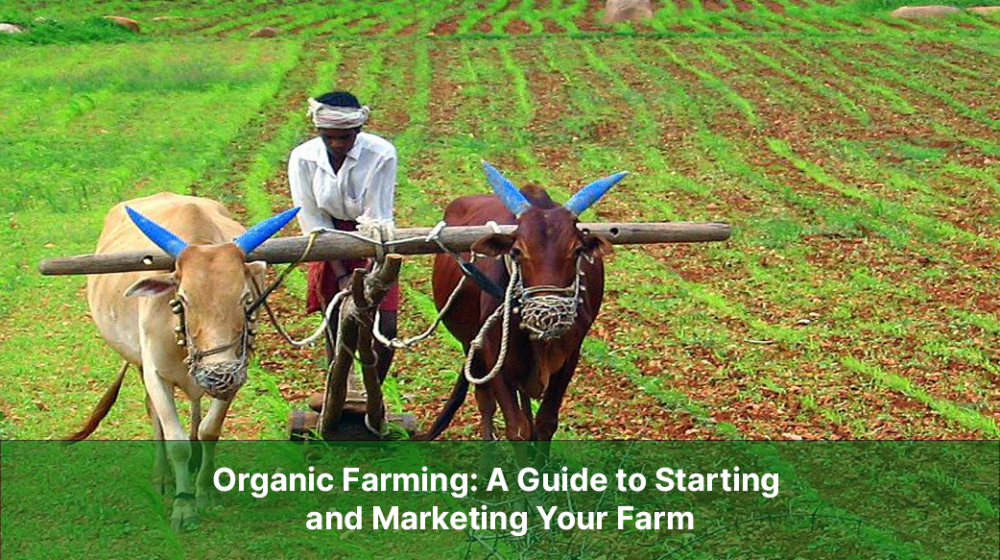What is Organic Farming?
Organic farming is a method of crop and livestock production that involves much more than choosing not to use pesticides, fertilizers, genetically modified organisms, antibiotics and growth hormones. Organic production is a holistic system designed to optimize the productivity and fitness of diverse communities within the agro-ecosystem, including soil organisms, plants, livestock and people.
Organic systems are managed in a way that sustains the health of soils, ecosystems and people. This is accomplished by minimizing the use of off-farm inputs and maximizing the use of crop rotations, cover crops, and biological pest control.
How to Start Organic Farming
If you are interested in starting an organic farm, there are a few things you need to do. First, you need to find a suitable piece of land. The land should be well-drained and have good soil quality. You will also need to get certified by an organic certification agency. This process can take several months, so it is important to start the process early.
Once you are certified, you can start planting crops. Organic farmers typically use a variety of crops, including vegetables, fruits, grains, and legumes. They also raise livestock, such as chickens, cows, and pigs.
What Kinds of Seeds Use in Organic Farming?
Organic farmers typically use seeds that have been certified organic. These seeds are grown without the use of synthetic pesticides, fertilizers, or other chemicals. There are a number of different companies that sell organic seeds.
How can we protect the organic crops from disease?
Organic farmers use a variety of methods to protect their crops from disease. These methods include crop rotation, cover cropping, and biological pest control. Crop rotation is a method of planting different crops in the same field each year. This helps to prevent the build-up of pests and diseases. Cover cropping is a method of planting cover crops, such as legumes, in the fall or winter. Cover crops help to improve soil health and prevent erosion. Biological pest control is a method of using natural predators, such as ladybugs, to control pests.
What are benefit of organic farming and disadvantages of Organic farming
There are many benefits to organic farming. Organic farms are better for the environment than conventional farms. They use less water, produce less pollution, and help to conserve wildlife. Organic farms are also better for human health. Organic foods are lower in pesticides and other chemicals, and they may have higher levels of nutrients.
However, there are also some disadvantages to organic farming. Organic farms are often more expensive to operate than conventional farms. They also require more labor. Additionally, organic farms may not be able to produce as much food as conventional farms.
How to market organic farming products in Pakistan and USA
There are a number of ways to market organic farming products in Pakistan and USA. One way is to sell directly to consumers at farmers markets or through CSAs (Community Supported Agriculture). Another way is to sell to retailers, such as grocery stores and health food stores. Organic farmers can also market their products online through their own websites or through third-party websites, such as Amazon.
- Market research: It’s important to do your research and understand the demand for organic products in your area. You can do this by talking to potential customers, attending farmers markets, and conducting surveys.
- Planning: Once you have a good understanding of the demand for organic products, you can start planning your farm. This includes deciding what crops you want to grow, how much land you need, and how you will market your products.
- Funding: Starting an organic farm can be expensive, so you will need to secure funding. There are a number of government programs and private lenders that offer loans to organic farmers.
- Education: There are a number of resources available to help you learn about organic farming. You can take classes, read books, and attend workshops.
- Networking: It’s important to network with other organic farmers. This can help you learn from their experiences and get advice.
- Perseverence: Starting an organic farm is a lot of work, but it can be very rewarding. Be prepared to put in the time and effort to make your farm a success.
Here are some additional tips for marketing organic farming products in Pakistan and USA:
- Focus on the benefits: When marketing your products, focus on the benefits of organic farming. These include better for the environment, human health, and more.
- Use social media: Social media is a great way to connect with potential customers and promote your products. Be sure to create engaging content and use relevant hashtags.
- Attend farmers markets: Farmers markets are a great way to sell your products directly to consumers. Be sure to set up a booth that is eye-catching and easy to find.
- Partner with retailers: Partnering with retailers is a great way to get your products in front of more customers. Be sure to research retailers in your area and find ones that are a good fit for your products.
- Offer discounts and promotions: Offering discounts and promotions can help you attract new customers and boost sales. Be sure to promote your discounts and promotions through social media and other marketing channels.
Organic farming is a growing trend in Pakistan and USA. There are many benefits to organic farming, including better for the environment, human health, and more. However, there are also some disadvantages, such as more expensive and less productive. Organic farmers can market their products through a variety of channels, such as farmers markets, CSAs, retailers, and online.
